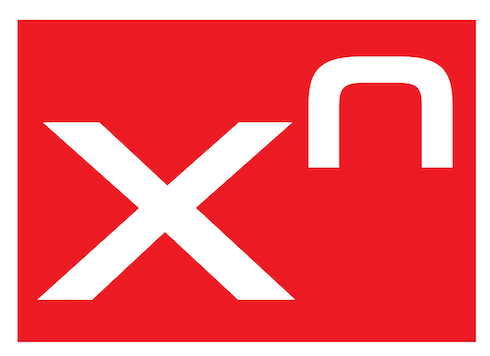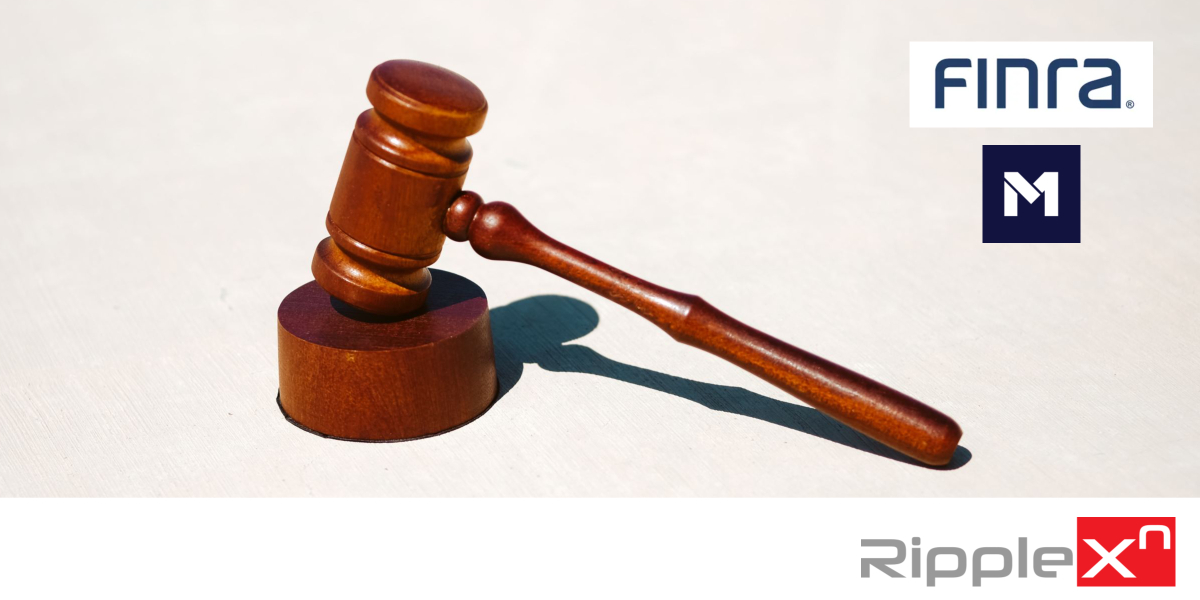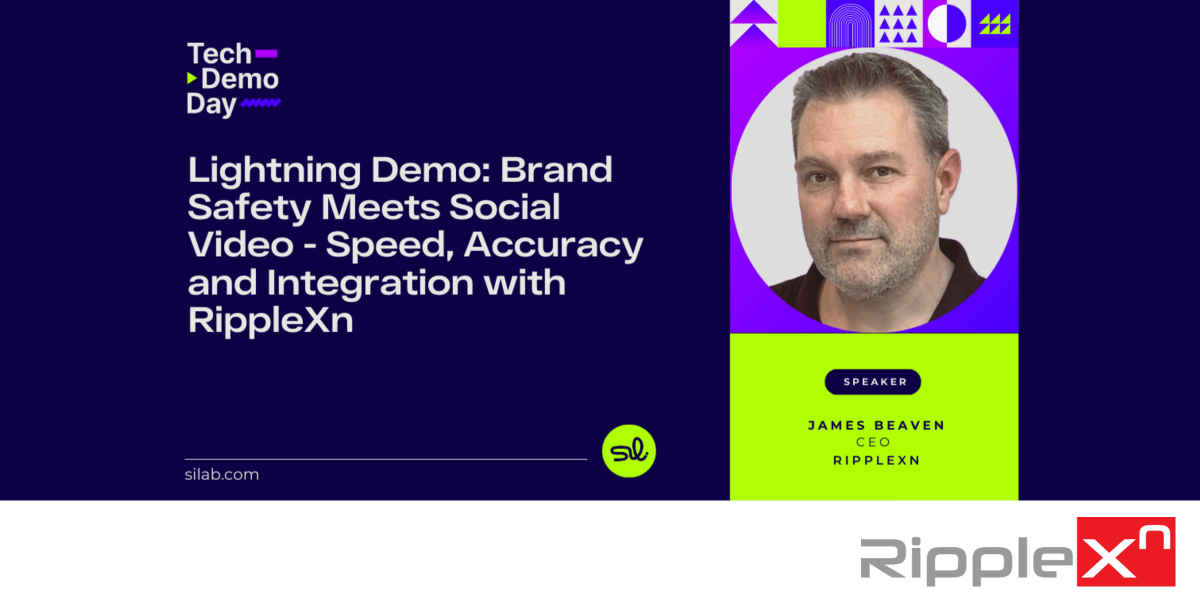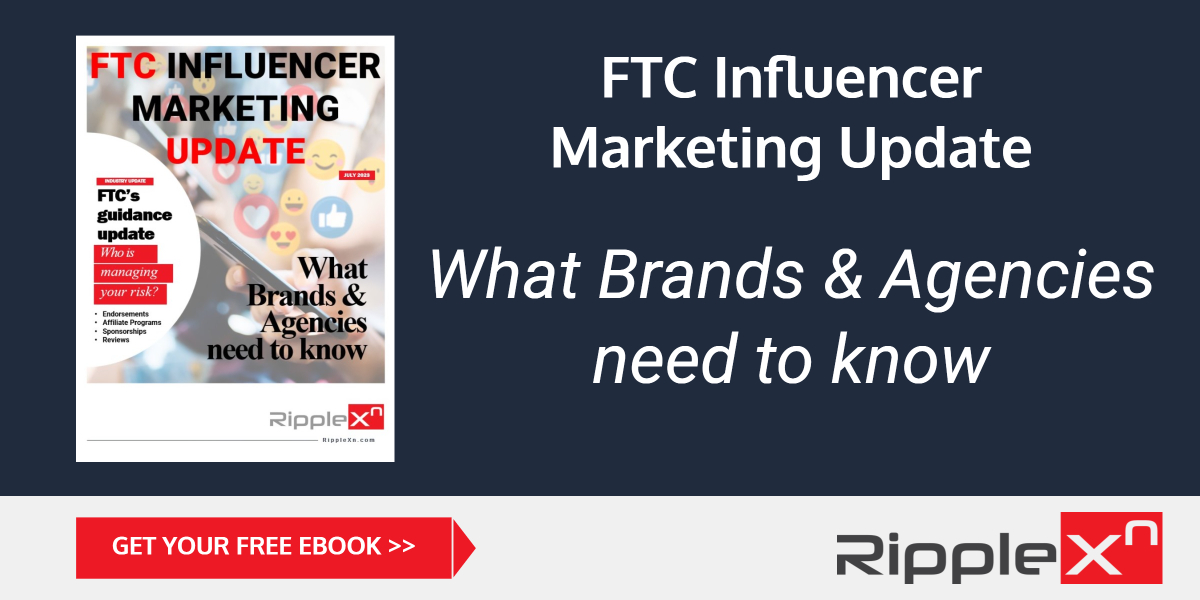On June 29th, the FTC released two major updates to the published endorsement guides. The first is 16 CFR Part 255 Guides Concerning the Use of Endorsements and Testimonials in Advertising, and the second is FTC Endorsement Guides: What people are asking.
In the update, the FTC’s guidance offers direct answers to questions from brands, agencies, trade bodies and influencers to help ‘ungrey’ some of the real-world examples of influencer marketing.
Our second of many posts here looks at what FTC expects of you when it comes to monitoring and checking your influencer marketing activities, and who’s ultimately liable if you don’t. Also see the first article.
Key topics and specific feedbacks
Does the FTC monitor influencers themselves?
To do this we’re cross-referencing the two updated documents, starting with a question whether the FTC monitored influencers? The FTC responded:
“If concerns about possible violations of the FTC Act come to our attention, we evaluate them case by case. If law enforcement becomes necessary, our focus usually will be on advertisers or their ad agencies and public relations firms. However, action against an individual endorser might be appropriate in certain circumstances – for example, if the endorser hasn’t made required disclosures despite warnings.”
That’s pretty clear. So if the FTC isn’t monitoring influencers, whose job is it?
Who should monitor influencers?
Switching to the Part 255 (non-Q&A version) the FTC states:
“In order to limit its potential liability, the advertiser should provide guidance to its influencers concerning the need to ensure that statements they make are truthful and substantiated and the need to disclose unexpected material connections and take other steps to discourage or prevent non-compliance. The advertiser should also monitor its influencers’ compliance and take steps necessary to remove and halt the continued publication of deceptive representations when they are discovered and to ensure the disclosure of unexpected material connections.”
Sensibly, the Commission appears to regard the percentage you need to monitor, audit or maintain oversight on as a basic risk calculation; the more consumer harm that can be caused, the more the onus is on you to monitor your campaign or network and take action when something falls below regulatory standards.
In other words; you’re the one on the hook, you’re the one that knows your campaign and product, you decide how much oversight is necessary!
How much is enough?
One phrase you often hear repeated in these documents is ‘Reasonable efforts’. If you found yourself under FTC scrutiny resulting from a complaint, you will need to demonstrate the processes you have in place. The ‘Reasonable efforts’ speak to the potential for consumer harm versus how much time, money and resources you put into…
- Training staff
- Informing network members and partners
- Monitoring program for material disclosure and truthfulness
- Processes for addressing problems when they occur
Without evidence that sufficiently demonstrates you operate these fundamental processes, weighed against the potential consumer harm, is what the FTC will be scrutinising. In their own words: “... it’s unlikely that the activity of one rogue influencer would be the basis of a law enforcement action if your company has a reasonable training, monitoring, and compliance program in place.”
Monitoring solutions are here, now!
We were delighted to see in this update an acknowledgement that software solutions are now available.
RippleXn has been developing AI software for the past two years based on first-hand experience of the impending compliance problem at scale. It’s easy to implement, cost-effective, and the new data points will augment the tools and processes you already have in place. Talk to the team about your needs and packages.
The three biggest FAQs from the updated FTC documents
Our final callout in this post are three particular questions and answers.
These are questions we get asked in virtually every customer meeting, and they are a loooooooong way down the page, so we’re ‘up-voting’ them. Take it away, FTC…
You say to periodically search for what our endorsers are saying. How often do we need to do that? Can you give us a standard, like monitoring of X% of our influencers every week or every month?
There’s no one-size-fits-all standard. If regular monitoring is too much for you, you should probably switch to pre-approval of posts.
For influencers who only get free products, is just sending them training material sufficient?
It’s important, but insufficient. If a company sends influencers a free unsolicited product and nothing else, it should ask them to clearly and conspicuously disclose the gift in any resulting social media posts or other endorsements, tell them how it should be disclosed, and ask them to tag the brand. The company should monitor the resulting tagged posts. We understand that software solutions exist to monitor compliance online. The FTC takes no position on their quality and recognizes that software like that might be too expensive for some companies. The extent of compliance monitoring needed, whether or not you use such software, may depend upon the types of products and possible claims involved, e.g., whether the claims involve health or safety.
Also, even if the only things you’re sending influencers are unsolicited free products, you’re still on the hook for their deceptive claims, so the training material should describe what they can and can’t say about your products.
Our company’s social media program is run by our public relations firm. We tell them to make sure they – and people they pay on our behalf – comply with applicable laws and the FTC’s Endorsement Guides. Is that good enough?
Your company is ultimately responsible for what others do on your behalf. You should make sure your public relations firm has an appropriate program in place to train and monitor members of your social media network. Ask for regular reports confirming that the program is operating properly and monitor the network periodically. Delegating part of your promotional program to an outside company doesn’t relieve you of responsibility under the FTC Act.
A GDPR sized event!
Our final prediction is Influencer Marketing is heading for a GDPR-sized event. All the regulatory bodies are moving in the same direction and converging. All that’s missing is a deadline, and that's coming! You won’t miss it because it will be wearing a big badge saying ‘Online Harms’.
If you are directly sponsoring, sending products for review or paying by results/an affiliate programme monitoring what your collaborations are saying on your behalf you need to be monitoring what they are saying, endorsing and promoting on every platform in real-time.
We are suggesting you review your internal processes and tech stack or ask your agency for their plan.
If you wish to talk to the RippleXn team about our solutions, reach out today.






